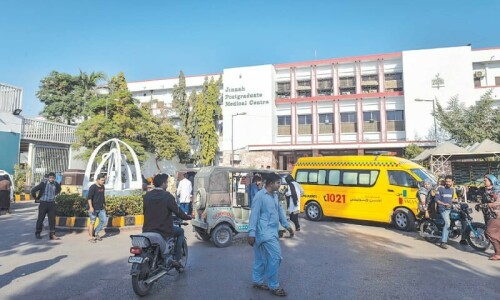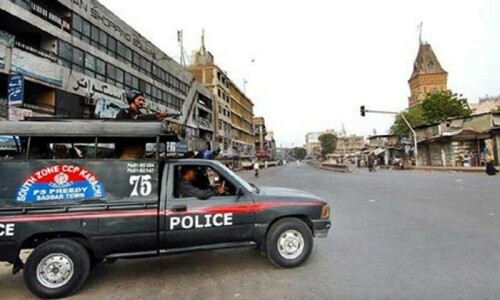KARACHI, Nov 28: Urgent measures are required to introduce cadaver organ donation law coupled with efficient national regulatory authority to monitor the procedures related to organ donation and transplantation in Pakistan. This was stressed at a consultative meeting on ‘Cell and Organ Transplantation’, organized by the World Health Organization for the Eastern Mediterranean and South East Asian regions. Participants of the moot, which concluded on Monday, observed that necessary legislation was prerequisite to combat the rising trend of organ tourism in the country.
Papers presented and data shared at the event held at Hanifia Suleman Dawood Oncology Centre of the Sindh Institute of Urology and Transplantation established the fact that necessary legislation done in India and other countries in the two regions had enhanced vulnerability of Pakistan to the heinous practice of organ trade.
This was registered to be more in the absence of urgently needed law that could protect marginalized segments against exploitation.
Talking to journalists following the meeting, WHO Clinical Procedure Coordinator Dr Luc Noel referred to the 57th World Health Assembly’s resolution that focussed on human organs and tissue transplantation. He mentioned that the strategy of the WHO was to meet the requirements of World Health Assembly’s resolution which included a series of regional meetings among the National Health Authorities — in charge of cell, tissue and organ transplantations.
The consultative meeting that concluded on Monday in Karachi was third in the series with the objectives to initiate a global network of local points at national health authorities level.
Special emphasis was given to the safety of live donors and involving transplantation societies to assist in promoting the Amsterdam consensus statement on live kidney donors.
WHO Representative to Pakistan, Dr Khalif Bille; Dr Carl Groth, a known surgeon from Sweden; Dr Del Monico from Harvard Medical School; WHO South East Asian Regional Adviser Dr Rajesh Bhattia, WHO Advisor for EMRO Dr Nabila Metawalli; Dr Adibul Hasan Rizvi and Dr G.N. Kazi responded to the queries raised following the consultative meeting.—APP













































Dear visitor, the comments section is undergoing an overhaul and will return soon.